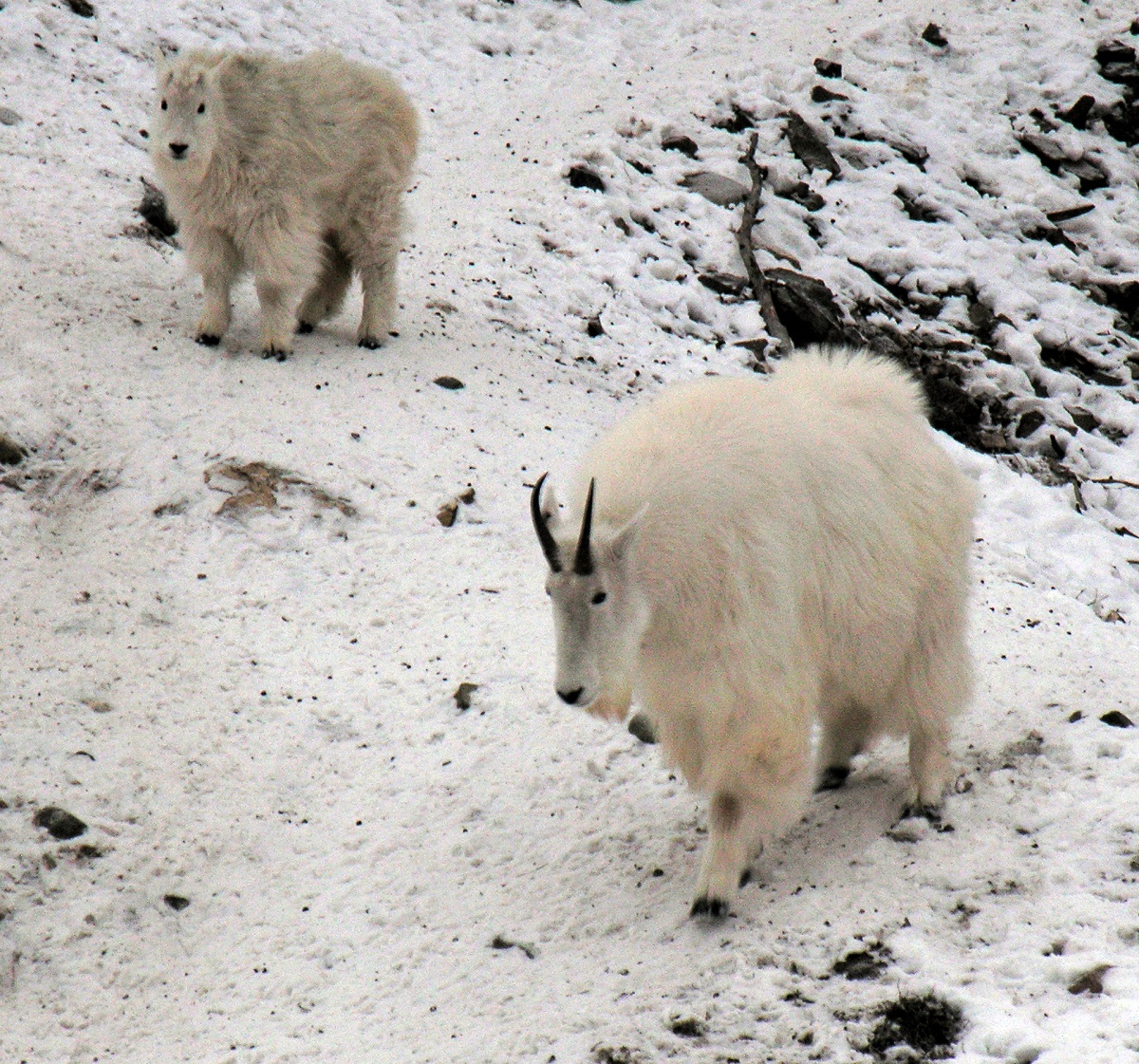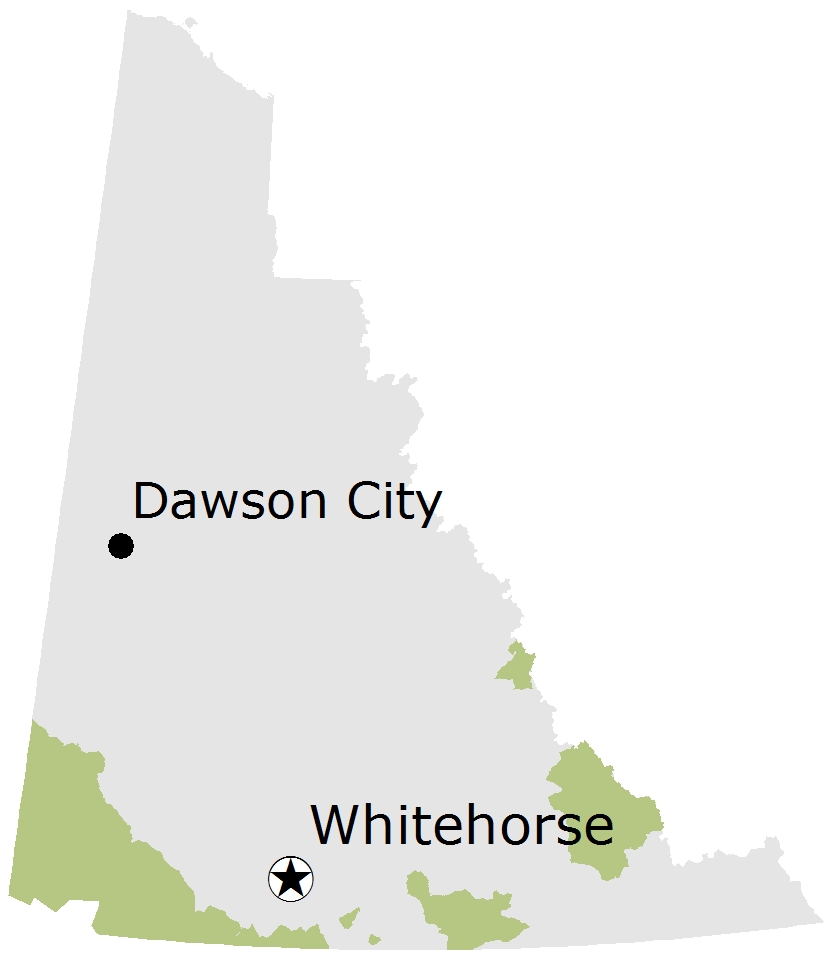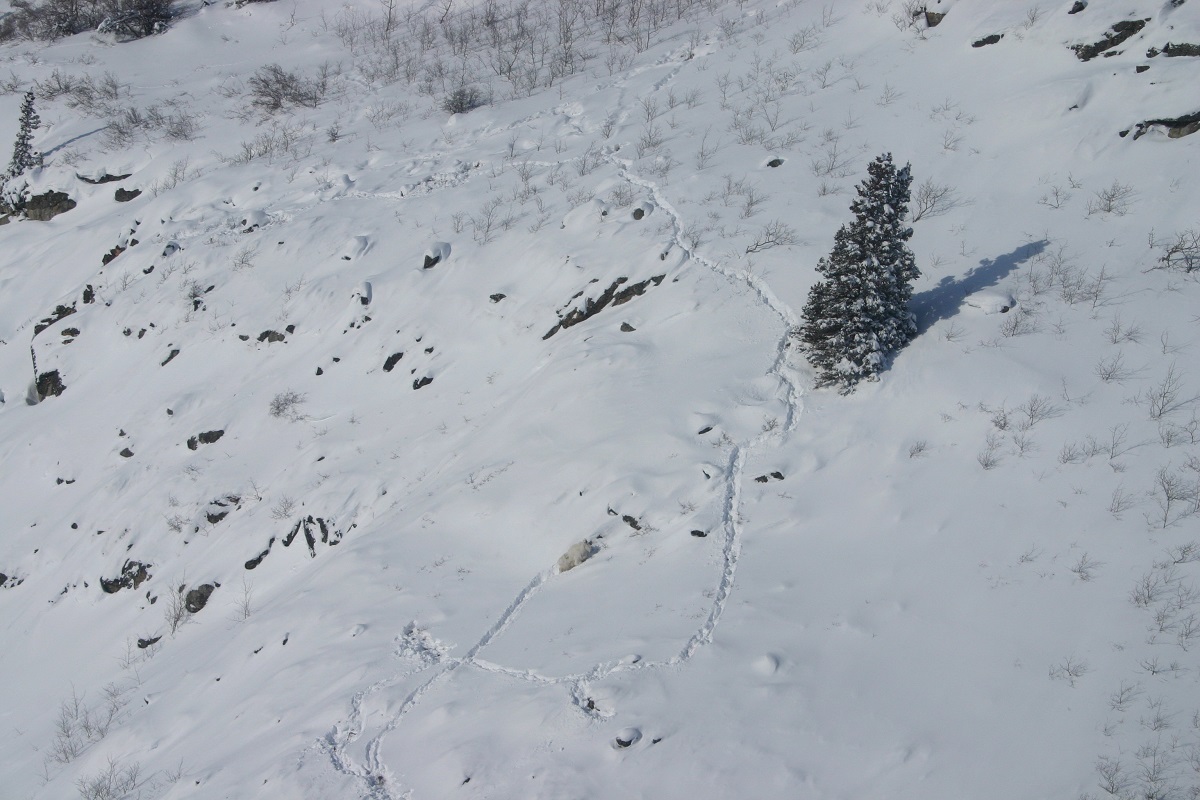
Name
- Common name: Mountain Goat
- Scientific name: Oreamnos americanus
- Order: Artiodactyla
- Family: Bovidae
Also known as
Rocky Mountain Goat
Viewing opportunities
- Mount White in Agay Mene Territorial Park has many opportunities to see Mountain Goats.
- Other places to look are: the peaks of the Coast Mountains along the South Klondike Highway at the BC and Yukon border, St. Elias Trail in Kluane National Park and Goatherd Mountain, which looms over the Lowell glacier.
Description
- All white fur, sometimes dirty brown in summer.
- Legs are relatively short compared to body.
- Pronounced hump over their shoulders.
- Black lips, nose, horns, and eyes.
- Both males and females have slender horns that extend up and away from its long and narrow face.
-
Female horns have a sharper curve and there’s a wider space between the horn bases than on male goats.
-
Males are up to 30% larger than females.
Fast facts
- Length: 1.4 m
- Weight: 70 kg
- Lifespan: 12 years
- Predators: Golden Eagles, wolves, bears
- Habitat: Mountain Alpine
Conservation status
- Yukon: S3 (Vulnerable)
- Global: G5 (Secure)
Yukon population estimate
1,500.
Behaviour
Mountain Goats live on precipitously steep rocky cliffs so they can quickly escape predators. They are generally solitary though kids will stay with nannies for about a year. Male Mountain Goats do not butt heads but instead they aim for hindquarters and bellies occasionally piercing internal organs with fatal results.
Diet
Grasses, sedges, rushes, conifers and flowering plants.
Distribution

Sights and sounds

Mountain Goat track: 7.5 x 4.8 cm.

Tracks in the snow.
Goats and people
- Mountain Goat fleece has been used by Indigenous peoples to make clothing, particularly trousers.
- Strict rituals were observed by wives when their husbands were hunting goats. Women of the Inland Tlingit did not touch their hair while the men were out hunting goats or sheep, for fear of "combing" the hunters off the cliffs.
- Today’s efficient hunting methods, as well as the high trophy value of the Mountain Goat, have put pressures on the North American population. The Mountain Goat is the rarest large mammal hunted in the Yukon. Males and females are so similar that protecting females is difficult. This has led to severe hunting restrictions to protect the species.